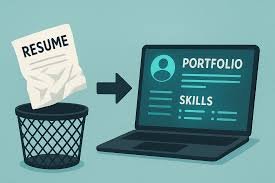
Interview Success: The 5 Questions You Must Ask Your Future Boss
Interview Success: The 5 Questions You Must Ask Your Future Boss
You’ve made it through the screening process, proven your technical chops, and now you’re sitting across from the person who could become your direct supervisor. This is the moment where the dynamic shifts. An interview is a two-way street, and while the employer is assessing your fit, you should be actively interviewing them. Your goal now is to gather the crucial intelligence needed to decide if this job is truly the right next step for your career.
Asking smart, insightful questions doesn’t just get you information; it signals your strategic thinking, initiative, and deep commitment to the role. It shows your future boss that you are thinking beyond the job description and are ready to be a valuable partner.
Here are the five essential questions you must ask your future boss to determine the role’s potential, the team’s health, and the company’s direction.
1. The Expectation Question: "What would success look like for me in this role after 6 to 12 months?"
This question is the single most important one you can ask because it cuts straight to the heart of performance expectations and clarifies your priorities.
Why it works:
-
It reveals measurable goals: A great manager will have clear, quantifiable targets. They might say, "Success in the first six months means you've completely streamlined the reporting process, reducing the time spent by 20%." A vague answer like, "Just doing a good job," is a red flag, indicating a lack of clarity in the role.
-
It shows your future focus: By asking about the future, you signal that you are goal-oriented and already thinking about how to add value, not just how to survive the first week.
-
It clarifies the learning curve: The answer tells you what skills they expect you to master first and where your immediate focus should lie.
Follow-up to consider: "What resources or training will be available to help me achieve that specific success metric?"
2. The Challenge Question: "What are the biggest challenges this team is currently facing, and how would this role help solve them?"
Every job has problems. A healthy work environment acknowledges them and frames them as opportunities. This question tests the manager’s transparency and allows you to position yourself as a proactive problem-solver.
Why it works:
-
It probes for transparency: A candid answer about genuine team struggles (e.g., "We're struggling with inter-departmental communication," or "We need to scale our system quickly") indicates a manager who trusts their team and is realistic.
-
It helps you assess fit: If the challenge they describe is something you genuinely enjoy solving (or have experience solving), you can immediately connect your skills to their need.
-
It avoids surprises: If the biggest challenge is something you absolutely hate doing (e.g., constant budget cuts or managing a hostile stakeholder), you get a vital warning before accepting the offer.
Follow-up to consider: "Could you share an example of a project where the team successfully overcame a major hurdle recently?"
3. The Team and Management Question: "How would you describe your management style, and how does your team typically work together?"
This question helps you determine the culture of the team and whether your working style will mesh with your boss’s approach. A great job with a bad boss is often worse than a mediocre job with a great boss.
Why it works:
-
It reveals autonomy vs. micromanagement: Listen for key phrases. Do they talk about empowerment and autonomy, or do they emphasize close supervision and frequent check-ins? If you are a self-starter, you want to hear the former.
-
It assesses team health: Listen for clues about collaboration. Do they talk about shared success and supportive communication, or do they emphasize individual accountability and competition?
-
It personalizes the relationship: This shows you are thoughtfully considering the working relationship, which is the most critical factor in job satisfaction.
Follow-up to consider: "How do you handle disagreement or constructive criticism within the team?"
4. The Development Question: "What opportunities for professional growth or mentorship will be available for someone in this position?"
This question shifts the focus from the job's daily duties to your long-term career trajectory. It shows ambition and a commitment to continuous learning.
Why it works:
-
It reveals investment: The manager's answer will tell you if the company is willing to invest time and money in its people. Do they offer a dedicated training budget, support for certifications, or internal mentorship programs?
-
It addresses career mapping: It allows you to gauge whether the role is a dead end or a clear stepping stone. They might even outline the natural progression path for someone in this role (e.g., "After two years, people in this role typically move into a leadership track").
-
It signals commitment: Asking this demonstrates that you are looking for a long-term professional home, not just a temporary stopgap.
Follow-up to consider: "Where did the previous person in this role move to, or how has this position evolved over time?"
5. The Culture Question: "How has the company culture evolved over the past few years, and where do you see it going?"
This question is a sophisticated way to assess the culture beyond the official mission statement. It asks the manager to reflect on change, which is always revealing.
Why it works:
-
It checks for authenticity: It's hard for a manager to give a stock answer when asked about change. Their response will reveal whether the company is proactive and adaptive or stuck in its ways.
-
It addresses work-life integration: A discussion about evolving culture often includes topics like remote work policies, flexibility, and employee well-being, giving you insight into the work-life balance reality.
-
It provides vision: Their answer shows whether leadership has a clear, future-focused vision for the workplace environment. Do they talk about adapting to new generations, prioritizing psychological safety, or maintaining innovation?
Follow-up to consider: "In the day-to-day, what's one thing the team does to actively reinforce that culture?"
By asking these five strategic questions, you move from being a passive interviewee to a thoughtful, engaged professional who is carefully vetting their next career move. The intelligence you gather will be invaluable in making the final decision, and the impression you leave will be one of competence and strategic leadership.
FAQs on Interview Questions
1. Should I ask about salary or benefits during the first interview?
It is generally best to avoid asking about salary or benefits in the first interview, especially with the hiring manager. This information is typically handled by the recruiter or HR during the screening phase. Asking too early can signal that compensation is your primary motivation. Focus the initial interviews on the role, the challenges, and the potential impact.
2. How many questions should I ask at the end of an interview?
You should aim to ask three to five strong, open-ended questions. Quality always trumps quantity. Have a list of about seven prepared, but only ask the ones that haven't been answered naturally throughout the conversation. Asking too many can take up valuable time, while asking none signals a lack of interest.
3. What if the manager says, "That's a great question," but gives a vague answer?
A vague answer is often a significant red flag. If they dodge a question about team challenges or professional development, it suggests they either haven't thought about it or are deliberately hiding an issue. You can gently prompt them once: "I appreciate that overview. Could you give me one concrete, recent example of a challenge the team has successfully solved?" If the answer remains non-specific, factor that lack of transparency into your final decision.




